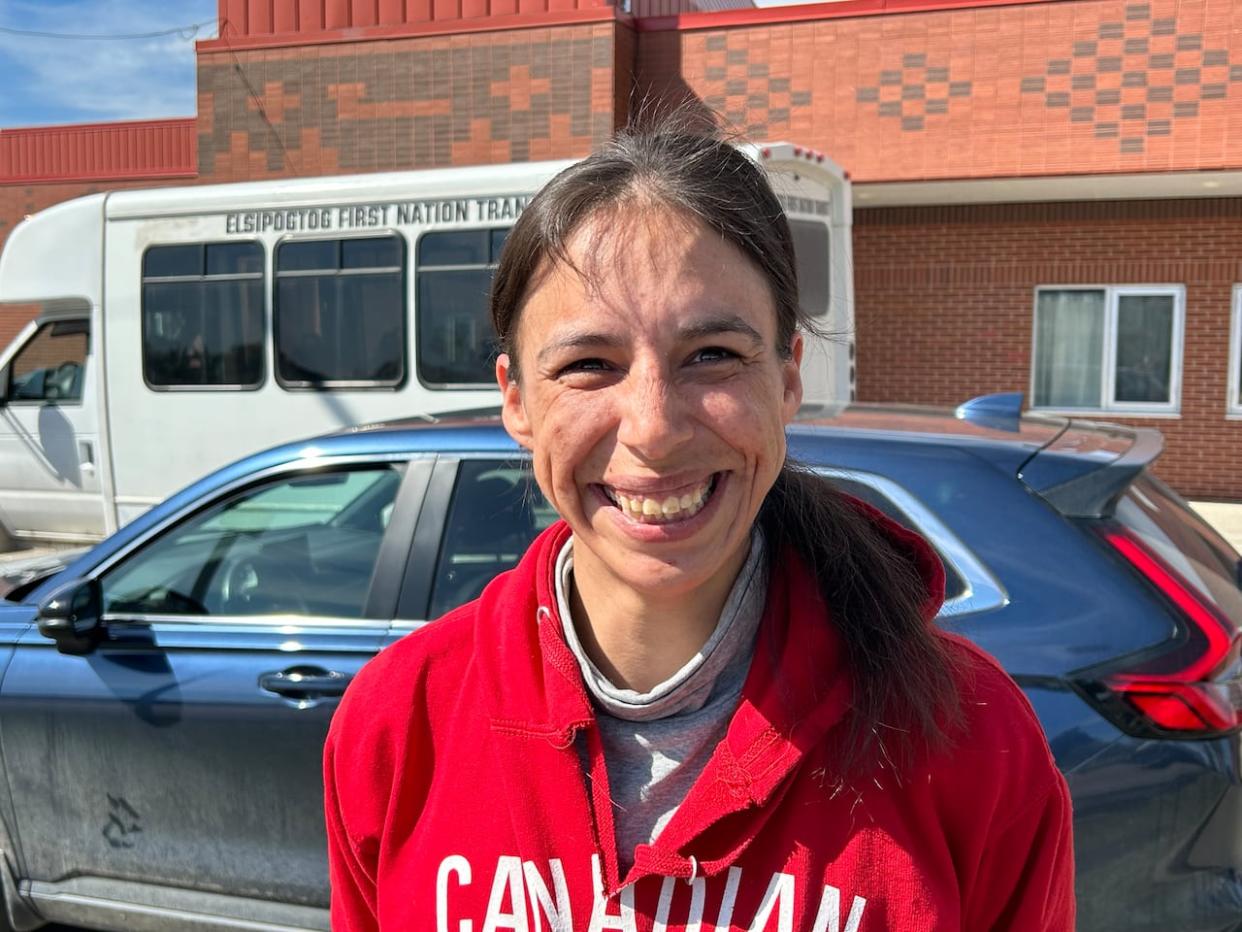Elsipogtog First Nation launches new bus service for community

Vanessa Clair greets bus driver Keanery Augustine with a friendly, "Good morning," as she boards the 12-passenger bus and drops her $2 into the fare box.
She says she loves the new service, Elsipogtog First Nation Transit, that started running in April as a pilot program, and she uses it a couple of times each week to pick up essentials, like groceries and medication.
There are two 45-minute bus routes and a total of 42 stops throughout this Mi'kmaq community of about 3,400 members, located about 90 kilometres north of Moncton.
"I find it very productive," Clair said of the new service. "It takes me anywhere I need to go."
Kimball Augustine, spokesperson for Elsipogtog and the public transit lead for the band, said there was a big demand for a local bus service as people were always having to call friends and relatives for rides.

Kimball Augustine, spokesperson for Elsipogtog First Nation and occasional bus driver, says if the pilot project is successful, they hope to add electric buses. (Rhythm Rathi/CBC)
He said the goal is not to make money, but to meet a need. The bus is wheelchair accessible and offers free rides to children under 12 and seniors over 65. Everyone else pays the $2 fare.
"It is to accommodate people who don't have wheels," he said. "We are helping the community."
Kimball said the service is usually busiest after school, with young people using it to get around the community for extra-curricular activities.
"The first week, I think just random people got on the bus just to say, 'I got on the bus service.' They were taking selfies," he said.
He called the service "a big step," for the community.
WATCH | 'Everyone's proud of it':
Before the bus service, Clair said people with a vehicle would charge a minimum of "five to 10 bucks" for a ride.
She'd like to see the service expand eventually, with one bus assigned to each of the routes to cut down on the wait-times.
"Where everybody is on a low budget, this bus actually helps take people who are on a budget to where they need to go."
"I was told you could sit on the bus all day long, just for that one price," Clair said.

Seniors and children 12 and under can ride the bus for free in Elsipogtog, while all others pay $2. (Ian Bonnell/CBC)
There has been constant interest from drivers wanting to work, Kimball said, and when there is nobody available, he drives the bus himself.
"I'll do anything to keep this running."
Keanery left the reserve two decades ago, but returned in April.
He said he loves driving the bus and has lots of conversations with his riders about their day.
He enjoys the mid-afternoon runs, when there's a mix of teenagers, adults and elderly passengers.

Carla Sock says the new service is a great option for people. (Ian Bonnell/CBC)
Lifelong Elsipogtog resident Carla Sock takes the bus about three times a week and says it is a great option for people with limited funds.
She stood on Stop 20, outside the grocery store, waiting for the bus to drop her back home, near Stop 17.
"I have to wait because if I walk, it is like a mile and a half," she said. "I can't do that."
The service is a two-year pilot project and if successful, the First Nation plans to add electric buses to the fleet in future, Kimball said.


